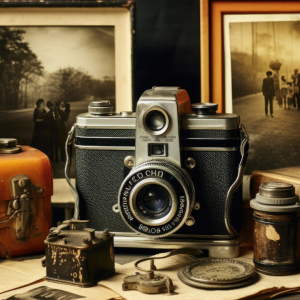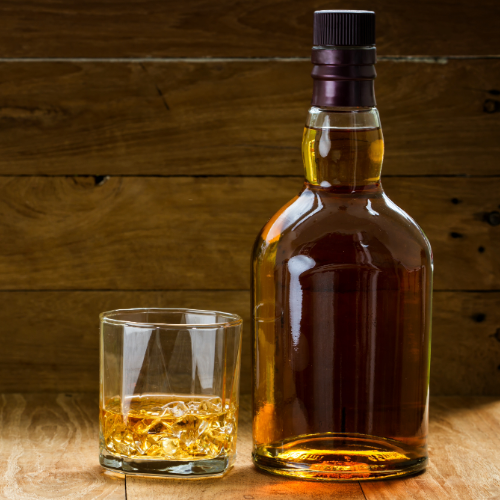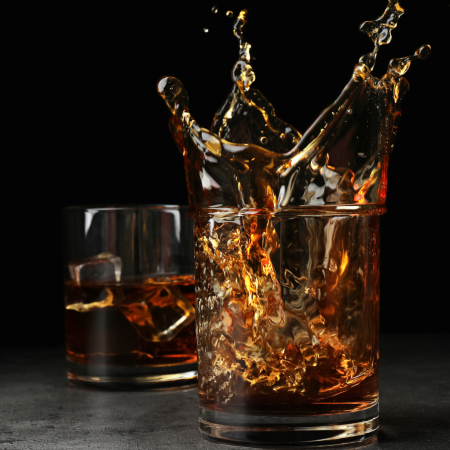Imagine the warm embrace of a golden liquid swirling in a glass, its rich aroma hinting at the years spent in slumber within oak barrels. This ethereal potion is none other than whiskey, a time-honored spirit that has captivated connoisseurs and enthusiasts for centuries. Journey with us as we explore the fascinating origins of whiskey and unravel the secrets behind its storage, from ancient beginnings to the present day.
The Origins of Whiskey: A Tale of Distillation and Experimentation
The genesis of whiskey can be traced back to the early days of human civilization. The art of distillation, believed to have originated in Mesopotamia around 2000 BCE, started as a method for purifying water and creating medicinal concoctions. It wasn't until the 8th century CE when Arab scholars refined the distillation process, leading to the production of more potent and enjoyable spirits.
As this knowledge spread through trade and conquest, it eventually reached the monastic communities of Ireland and Scotland in the 11th century. Monks, who were already skilled in brewing beer, eagerly embraced this newfound art. They began experimenting with distilling malted barley, giving birth to the earliest prototypes of whiskey.
It was during the 15th century when whiskey production moved from monasteries to private households. The Gaelic term "uisge beatha" (meaning "water of life") became synonymous with this beloved spirit, which would later be anglicized to "whiskey." From then on, whiskey production proliferated across the British Isles, with each region putting its unique stamp on the spirit.
The Art of Maturation: The Birth of a Timeless Treasure
The soul of whiskey lies in its maturation process, an intricate dance between the spirit and the wood that encases it. Traditionally, oak barrels have been the vessels of choice due to their unique chemical composition and remarkable durability. As the whiskey slumbers within, it absorbs the flavors and colors of the wood, transforming into a symphony of delectable notes.
Scotch whisky, for instance, is often aged in ex-bourbon or ex-sherry casks, which impart a rich tapestry of flavors, ranging from fruity to spicy. In contrast, Irish whiskey frequently matures in ex-wine or ex-port barrels, producing a lighter and more delicate profile. American whiskey, such as bourbon, has its own set of rules, requiring the use of new, charred oak barrels, which contribute to its bold, caramel-infused character.
The Sublime Science of Whiskey Storage
Proper storage of whiskey is essential in preserving its complex flavors and aromas. To achieve this, consider the following key factors:
-
Temperature: Whiskey thrives in a stable environment with a consistent temperature of around 15-20°C (59-68°F). Drastic temperature fluctuations can cause the spirit to expand and contract, potentially damaging the bottle's seal and altering the whiskey's flavor profile.
-
Light: Exposure to direct sunlight or harsh artificial light can degrade the quality of whiskey over time. Ultraviolet rays can react with the compounds within the spirit, resulting in discoloration and off-flavors. To prevent this, store whiskey in a dark place or a cabinet that blocks out light.
-
Humidity: A humidity level of 50-70% is ideal for whiskey storage. Too much humidity can cause mold growth on the cork, while too little can lead to the cork drying out and crumbling, potentially allowing air to enter the bottle and spoil the whiskey.
-
Orientation: Unlike wine, whiskey should be stored upright. This prevents the high alcohol content from dissolving the cork and tainting
the spirit. An upright position also ensures that the whiskey's liquid surface area is minimized, reducing the risk of oxidation.
-
Environment: Select a space free of strong odors or contaminants, as whiskey can absorb external smells, affecting its taste and aroma. A well-ventilated, clean, and odor-free area is ideal for preserving your whiskey's integrity.
-
Longevity: Although whiskey does not age further once bottled, it can still change over time when exposed to oxygen. If you plan to store a bottle for an extended period, consider using a wine preserver spray, which replaces the air in the bottle with an inert gas, slowing down the oxidation process.
-
Organization: For collectors or enthusiasts with a large whiskey collection, proper organization is crucial. Keep track of your bottles by cataloging them, noting details such as distillery, age, cask type, and bottling date. This will not only help you locate specific bottles with ease but also allow you to monitor your collection's evolution over time.
A Toast to Whiskey: The Timeless Elixir of Life
From its ancient origins to the modern-day passion for collecting and savoring its nuanced flavors, whiskey has stood the test of time. This liquid gold has woven itself into the fabric of human history, marking celebrations, forging friendships, and soothing the soul. As we raise a glass in tribute to the rich legacy of whiskey, let us appreciate the care and craftsmanship that goes into each drop, from distillation to storage, and savor the sublime experience it bestows upon us.
-








